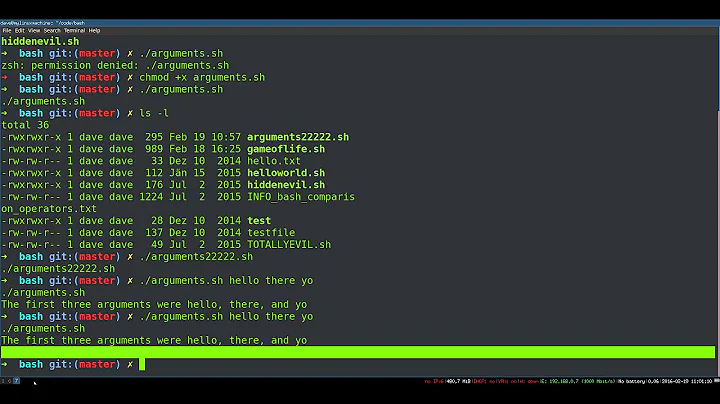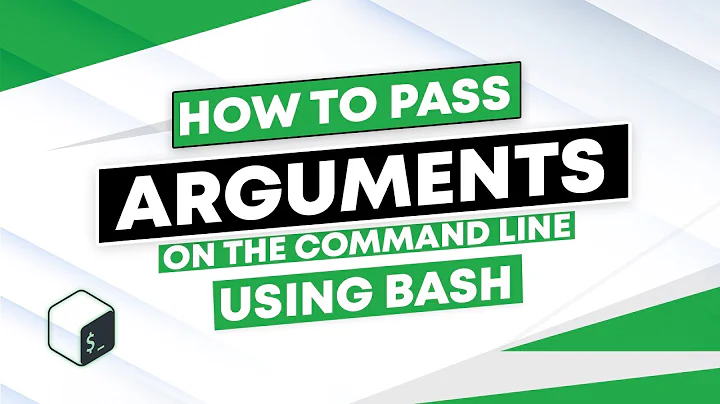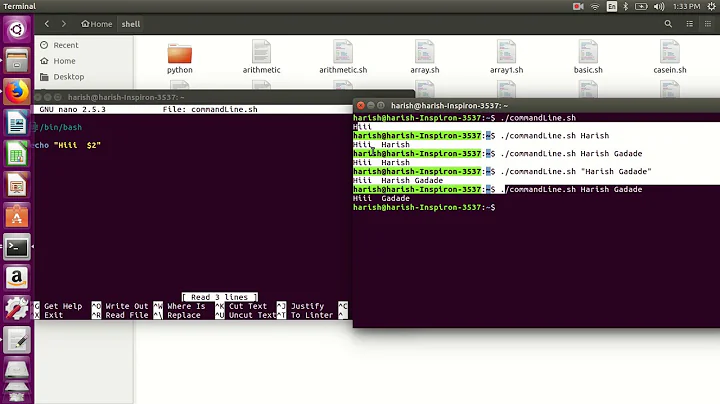Parsing/passing command line arguments to a bash script - what is the difference between "$@" and "$*"?
Solution 1
"$@" corresponds to "$1" "$2" "$3" etc. "$*" corresponds to "$1 $2 $3" which you do not seem to need.
Without quotes, there is no difference, they both correspond to $1 $2 $3 etc.
Solution 2
$* is all parameters as a single word, $@ is all parameters as individual quoted string.
I usually ends up using "$@", seems to work the best for me.
Related videos on Youtube
Escribblings
Updated on June 21, 2022Comments
-
Escribblings about 2 years
I am using a bash script to call and execute a
.jarfile from any location without having to constantly enter its explicit path.The
.jarrequires additional variable parameters to be specified at execution, and as these can be anything, they cannot be hard coded into the script.There are 3 variables in total, the first specifies 1 of 2 actions that the
.jaris to make, the second specifies a target file to enact this action on and the third specifies the name of a file that the action is to create.The script I am currently using is:
#!/bin/bash java -jar "C:\path\to\file.jar" "$1" "$2" "$3"I know very little about bash scripting, but while searching for another answer to my woes (now fixed) I came across
"$@"and"$*"when referencing command line arguments. Doing more searching brought me to this site: How To Wiki: How to read command line arguments in a bash script, but I can't find any solid information about those arguments without having to wade through tons of advanced bash programming that is way above my head.So now that I have rambled on forever, my question is relatively simple:
Can I replace
"$1" "$2" "$3"with"$@"or"$*", and if so which is the better one to use?Also what, if any, is the difference between those commands?
-
sgibbpossible duplicate of What is the difference between $@ and $* in shell scripts?
-
-
Escribblings about 11 yearsThank you. Between your answer and @mogul I think I now understand. I will use
"$@"as I feel this is the best suited option.






